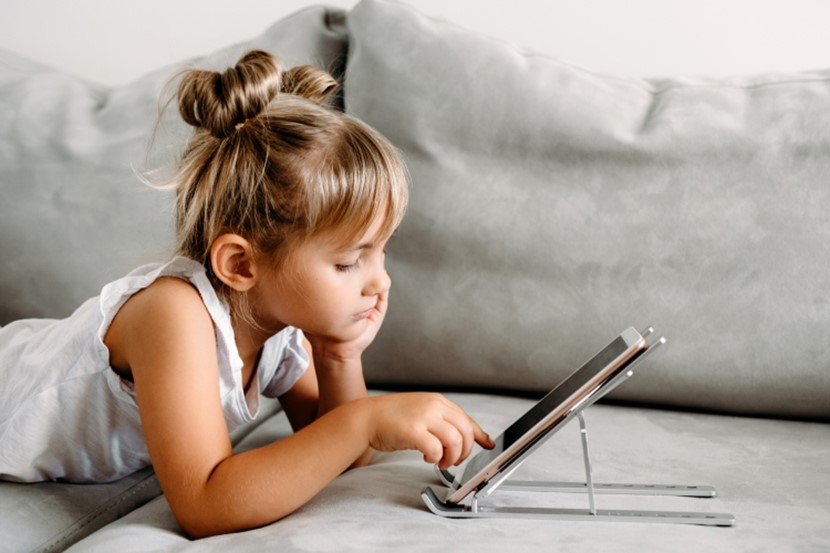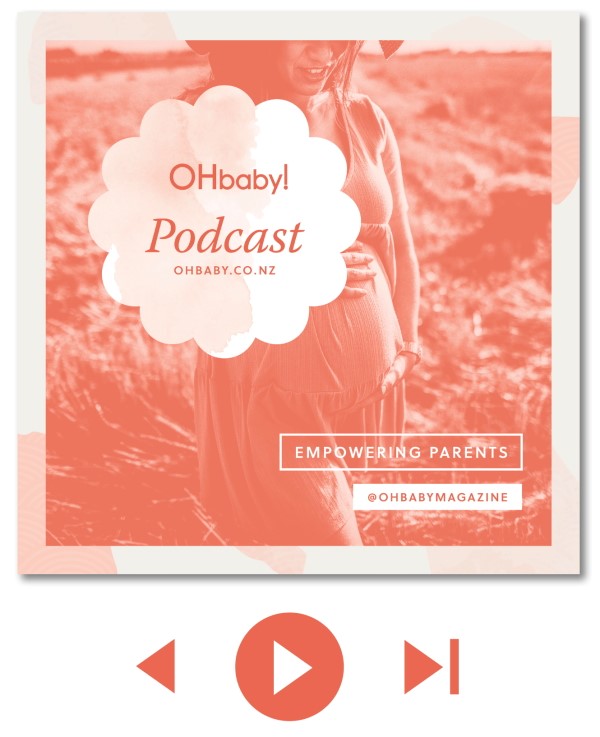Interview with Clinical Psychologist: mindful screen time use

OHbaby! founder Angela Pederson interviews Clinical Psychologist, author, mother of three, and host of the OHbaby! Mindful Parenting Course, Chantal Hoftsee to discuss mindful screen time use with our kids.
Mindfulness
The concept of mindfulness is nothing new, it’s been around as long as human beings have been around. Chantal describes it as “Paying attention in a nonjudgmental way”. It’s something you can practise intentionally in your whole approach to life. We can train our thoughts to be more mindful in everyday life, and according to Chantal this practise reduces the activation of our stress response. “By focussing all or most of your attention on the here and now you can keep the triggers over the little things under control and eliminate unnecessary stress”.
Brain states
Chantal talks about red, orange, and green brain states. “Essentially green brain is low stress, where all your mental resources are available, and all parts of the brain are active and working. On a chemical level you have higher levels of serotonin and oxytocin which are our feel good and relationship chemicals and your adrenal and stress is either low or really well managed” says Chantal. “Red brain is the other end of the spectrum, our prefrontal cortex can go offline and we’re working mostly from our emotional and instinctive brain, which is not useful when we need to stay calm and react with empathy and put in healthy boundaries. Orange brain is the neutral middle ground but we’re always one, two or three steps ahead of ourselves so physically we might be doing something but mentally we’re thinking about something else”. Chantal shares that you can be forever in a state of not being present, however mindfulness is a strong green brain activator. “It’s having your attention where your body is, and not jumping around” she says.
Screentime
When it comes to a mindful approach for managing screens Chantal says there’s not a black and white rule around it. She says that what is important to realise, especially for younger kids is that screen time, even though it is enjoyable and entertaining, is not always beneficial for parents or kids when used too often. “Usually what happens is that the mornings tend to be quite stressful, kids don’t usually like rushing and getting out the door. Then at school, the teacher gets the best version of your child, then they come home and the stress can increase with all the emotions that at school they didn’t want to let out, and they may feel transition stress. Then by the time you come home, dinner needs to be done. A lot of parents will put on a screen as they can’t deal with all the emotional chaos but then the turning off of the screen can be a red brain trigger for a lot of kids (it can be a trigger for us too, let alone a tired, hungry, emotional child). Even though the emotion seems to disappear, you’re just pushing the snooze button on the emotional downloading. Then the meltdown happens after the screen goes off” says Chantal. “I felt like I needed them to be on a screen so I could cope with the after school emotion plus the having to do dinner, it’s not easy. What got me thinking about this was that as a psychologist I see quite a few teenagers that are struggling and one of the things that really shocked me about working with them was just the amount of time they would spend on a screen. For most of them it was an average of about eight hours, over and above the time spent on the screen doing schoolwork. That’s an entire workday of social media, youtube, music videos, and whatever else they do on there, and it really made me feel a little bit hopeless in the sense of ‘How do I help these kids if eight hours every single day they spend on these anxiety-provoking platforms, what is one hour a week with me going to do?’ So it is one of the things I often talk about with teenagers. It’s not that I’m against screens, I just know they’re really difficult to moderate” she says.
Chantal shares that at a workshop she did, two parents came up to her and said: “We took your advice and banned all screens”. She remembers thinking, ‘I don’t remember giving that advice’ but the women went on to say to her how amazing it had been for their families, they said it took three days but after that the kids just accepted it and there was so much less stress and arguing and big emotions in their families. “I got home that night and told my husband, ‘We’re going to do that’ and we did, we went cold turkey for three months with no screen time for the kids at all. We read books, played games, and it was really interesting because it took them a while, we used to do screens after school most days, at the start they said they were bored and we explained we were going to do this fun experiment, they weren't very keen but it only took a couple days and they settled into this different dynamic of a lot more creativity, playing together so much better, more going outside, more reading, more art. When the screens were a more regular thing, they would just be hanging around, being bored, waiting for the screen to be put on and when things got stressful, that’s what we would do. They wouldn't go into green brain play, they were just in orange brain” she shares.
Chantal says that as parents we can be addicted to our kids' screen time. “As a family you can prepare for things to do instead of screens, such as going to the library, seeing what activities you could be doing outside, and making plans together”.
After about three months Chantal says that they loosened up, but what they learnt was that the screens were having such an impact on their emotions and their connection as a family. “When you have young kids and they go to bed at seven, you really don’t get much time with them, if that time is after school meltdowns, then they’re behind a screen, then dinner can be stressful because they’re dealing with the screen being turned off, then it’s bedtime. We’re not a screen-free family anymore but it’s also not a daily thing that they expect, it’s more for special occasions, and this has really helped” she says.
Screens are intentionally highly addictive, Chantal says, and parenting older kids especially is a tough job. “They're the first generation of teenagers growing up with this kind of access to media. It’s not something that even a lot of adults can manage well. I think it’s important to understand the power of screens and how they influence our brain, and have regular check-ins about it and ask ourselves the question ‘Is this supporting our connection as a family or taking away from it?’”
OHbaby! magazine brings you the OHbaby! Empowered Parents Podcast.
 |
|








